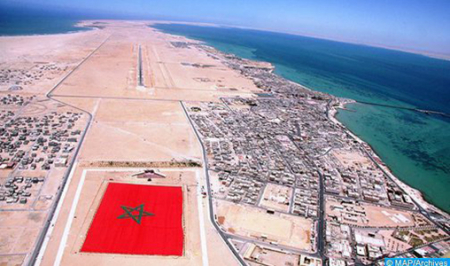Sahara Issue: Former Zambian Interior Minister Urges Algeria to End ‘Artificial, Unnecessary Conflict’
Former Zambian Interior Minister Grace Njapau has urged Algeria to assume its responsibilities in order to end the “artificial conflict” over the Moroccan Sahara, highlighting Morocco’s firm will to continue its policy of the outstretched hand, reaffirmed by His Majesty King Mohammed VI, to overcome the blockage of relations and find a solution to this “useless” dispute. “As an African woman, I find the persistence of a conflict that does not exist at the base strange,” she told MAP in Kinshasa, on the sidelines of a seminar organized the Public Affairs Cabinet (BM Patners), under the theme “The African Union in the light of the Sahara issue: how to move from a dynamic of failure to a final solution serving African unity”. She underlined, as did the participants in this meeting, “that the Sahara is and will remain Moroccan”. In this regard, Njapau underlined that Morocco continues to make efforts to ensure the appropriate environment to the population of the Southern Provinces and to all African citizens, noting that the Moroccan Sahara is today a more prosperous, more stable and more advanced region, thanks to the New Development Model of the Southern Provinces launched in 2015 by His Majesty King Mohammed VI. This large-scale project, which includes numerous educational, economic and social development projects, has radically transformed the economic and development prospects of the region, said the former Zambian minister, noting that this initiative is being implemented as part of a comprehensive and integrated national development strategy, which aims to improve the living conditions of local populations and to carry out major infrastructure projects in order to ensure a sustainable economic take-off of regions. This new dynamic triggered by the New Development Model of the Southern Provinces, attracting significant national and international investments, will make this region a pole of economic exchanges and an interface of cultural and human connection between Morocco and the countries of Sub-Saharan Africa, she pointed out. She also shed light on Morocco’s achievements in the southern provinces, particularly in the areas of industry, infrastructure, health, trade and the environment. This seminar brought together about sixty participants and thirty speakers from five countries of the sub-region, namely Angola, Cameroon, Gabon, DRC and Zambia. Speakers included politicians, experts and academics, economists and representatives of the private sector, members of Think Tanks and eminent members of civil society.

